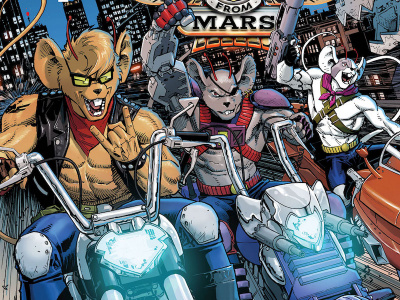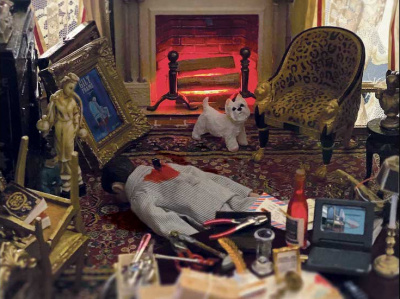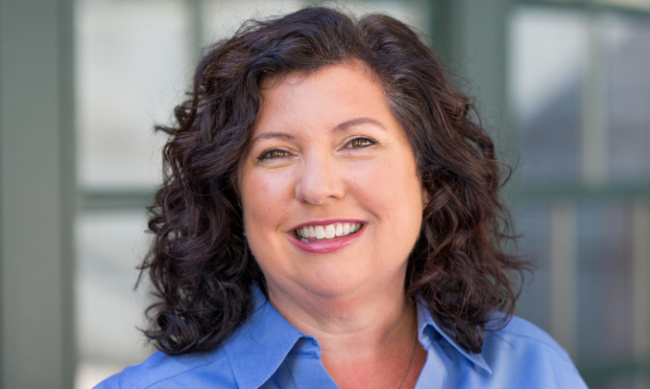
Malcom Wong’s Dog Eaters screenplay won three awards at the Screenwriting Expo 5 in
How involved in the writing of the Dog Eaters comic book series are you?
Very. Sean J. Jordan did the initial heavy lifting of re-formatting the 118-page screenplay into a 168-page graphic novel script. He made decisions to cut scenes, characters, and condensed story lines and dialogue -- making necessary reductions in detail and plot complexity to fit the comic/graphic novel format. I then went back in and did a lot of re-writing. It was a sort of tag team effort where Sean had the first shot at the adaptation and I had the last say. It worked very well and I’m very satisfied with the result.
What are some of the differences between writing a screenplay and scripting a comic book series?
Structure. Generally, a screenplay is a shorter form of fiction, with a beginning, middle, and end. I’ve never written a comic book series from scratch before, so take this opinion with a grain of salt: the best comic series is endless; the most successful go on forever. So it seems to me that a series would be harder to structure without falling into a pattern that repeats itself.
Initially, we were thinking that Dog Eaters would be released in black & white as a graphic novel. But we decided that since the art was taking so long (not necessarily a bad thing if the quality is great), that a six-issue miniseries in color with a monthly release would be a better path. Luckily each of the six episodes or issues has a beginning, middle and an end that leaves you with questions you want to find out about in the next issue. It just happened to work out this way this time.
Are there elements that you can emphasize and things you can do in a comic that are impractical or too expensive to do on screen, and were you able to exploit any of these sorts of things in the comic version of Dog Eaters?
There was a reader (of the screenplay) who estimated that to produce Dog Eaters, the movie, it would take at least $50 million. If anything, the comic version is scaled back because there are fewer scenes. There is a fair amount of pyrotechnics, and the casino-cities’ exteriors, but so much can be done digitally these days.
There have been lots of post-apocalyptic science fiction novels, movies, and even comics--what did you try and do in Dog Eaters to make the story stand out from others in the same genre?
Most post-apocalyptic stories feature loners, a single protagonist with a lot of enemies. One that immediately comes to mind is Mad Max or I Am Legend. Dog Eaters is about the adventures of a family within a close-knit clan. Lamont is a dominating patriarch with a certain sense of entitlement when it comes to women. Tracy, his daughter, is very tough, but also discovers what it is to fall in love. The young Turks, Tommy, Stevie, and Bevan deal with growing responsibility and the succession of power.
And they have to fight off bands of Roaches as they make their way down the trade route between the casino-cities of the U.S. Southwest.
Were you involved in the selection of the artist for the Dog Eaters comic book series, and, if so, why did you want to use “manga-style” art to illustrate your science fiction saga?
I didn’t really think about preferring a comic or manga style. Before an artist was selected, I found samples of Punisher and Iron Fist and showed them to the Dabels. I wanted that kind of look for this project. One of the artists that David Dabel had discovered, Guilllermo A. Angel from
Can you give us a progress report on any possible movie versions of Dog Eaters?
Several actors have expressed desire to play roles in the movie, but there have been no meetings with execs or producers or any above-the-line movie people. My manager says -- and I completely agree -- that we won’t have maximum leverage unless Dog Eaters comes out and makes a huge splash. Until then, it is not a million dollar property. Just have to be patient and see what happens.
Do you think that having Dog Eaters published in comic book form will help drive interest in creating a movie version?
I think Dog Eaters, the comic, can be viewed as a pretty detailed storyboard. Being able to visualize a movie from a screenplay is usually not that difficult, but I think it may be even easier when you start from a comic or graphic novel. A picture is worth a thousand words, so what is a sequence of pictures worth?
People who have downloaded and read the free preview Issue #0 have mentioned that are already doing some casting in their minds. In this sense, I believe that we are closer to the goal of a movie.
You’ve directed numerous music videos featuring top J-Pop artists—can you identify some of the videos that our North American readers may have seen, and are you interested in making the transition to directing feature films (such as a screen version of Dog Eaters)?
Unless you’re a J-Pop or Japanese Rock fan, you won’t know any of the music acts I did promotional videos for. I shot video for Minako Honda in
I am interested in directing movies, but not Dog Eaters. There are too many directors that can do action better than me. It would be insane to think I could out-direct them. I think Ridley Scott would kill this--hit it right out of the park.
I have written other screenplays and there is one in particular, Ronin Camera, a noir set in Japan, that I would like to direct somewhere further down the line.
Having lived in
Manga and anime has not influenced me directly. I must admit I’m not a huge fan. My son is though, and he has bookcases full of manga. I look through them, but more out of academic interest rather than true love. Of course I’ve seen Ghost in the Shell, and really enjoy all of the Studio Ghibli movies.
Are you interested in writing future projects as comic books first, or is your primary focus on writing screenplays? Is the Dog Eaters saga open-ended enough to allow for the creation of additional comic book miniseries?
Writing screenplays is what I want to continue to do. I originally started writing novels, then screenplays, and now comics. Can you see the pattern? I might end up writing dirty limericks for a living!
I have the basic story for a sequel to Dog Eaters as a screenplay in my head, but my manager told me that if Dog Eaters sells as a movie, I might not even have the right to do a sequel. However, Dog Eaters is a creator-owner project, and at this time, I retain all rights, so if I keep my wits about me, hopefully I’ll be able to take this story even further. I’d like to.







